Are Campaign Criticisms of the Liberals and Conservatives Hitting the Mark?
The 44th general election has seen its fair share of negative messaging, particularly in the closing weeks. Strategists use this type of messaging knowing it can trigger an emotional response in voters and play a role in their final vote choice.
The degree to which this kind of messaging impacts the final outcome of an election can be difficult to measure, but as researchers we were curious to find out with whom, if anyone, these types of messages resonate. We tested eight (8) messages that have been communicated in one way or another during this election that are specifically about reminding people of concerns they may have – or triggering new concerns – about either the Liberal Party of Canada or the Conservative Party of Canada. We focused on these two parties because they are frequently subjected to negative messaging from opponents or critics, providing an abundance of messages to test.
Our findings show that over half of respondents are very or somewhat concerned about every one of the items we tested. When it comes to attacks levelled against the Liberals, the greatest concerns are over the cost of living should they win the election (66% very or somewhat concerned), followed by the federal deficit (64%). Slightly fewer are concerned about government integrity (59%) and jobs and the economy (58%).
As for the concerns opponents of the Conservatives have attempted to raise, health care (62%) and the COVID-19 pandemic (60%) seem to resonate the most, followed by gun control (57%) and access to abortion (54%).
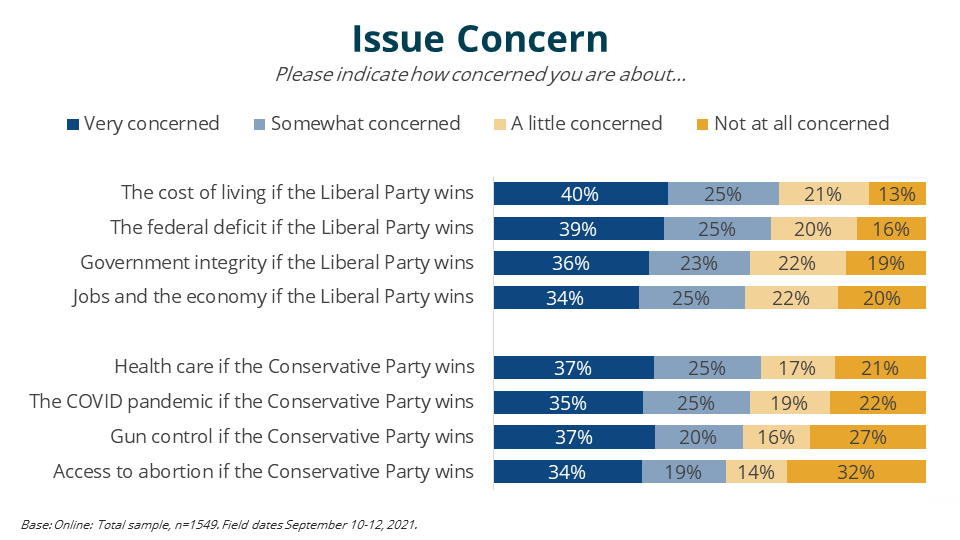
Among Conservative and Liberal voters, concerns largely fallout along party lines. Almost all Conservative voters are concerned about the cost of living, the federal deficit, government integrity and jobs and the economy if the Liberals win. In contrast, less than a third are concerned by the arguments levelled against their own party.
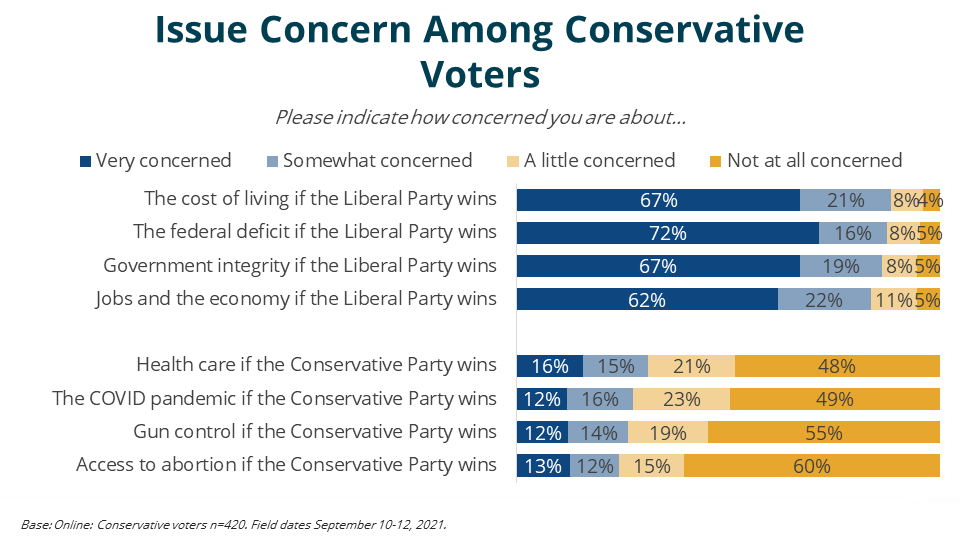
Liberal voters are by far more concerned about any outcome under a Conservative government than a Liberal one, but it is worth noting that 43% of the Liberals’ own voters are concerned about the deficit should their party win, along with over a third (37%) who worry about the cost of living. These economic-based criticisms of the party are the most powerful, capable of raising concern even among Liberal partisans.
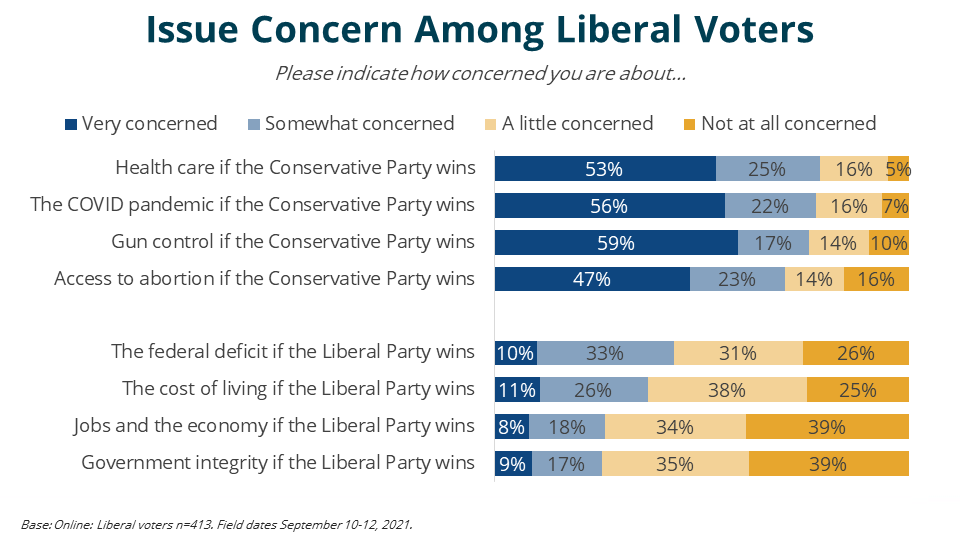
Finally, NDP voters are most concerned by the issues of health care and the COVID-19 pandemic should the Conservatives win (87% and 85% respectively), followed by gun control (83%) and abortion (77%). While they are less concerned about any of the outcomes we tested under a Liberal government, still two-thirds (64%) are concerned about the cost of living. Half or more are concerned about government integrity (56%), the federal deficit (52%) and jobs and the economy (50%). As we enter the final hours of the campaign, NDP supporters will no doubt be pressured to vote strategically for the Liberals, to prevent a Conservative government. The data shows that argument is perhaps more difficult to marshal than is commonly thought.
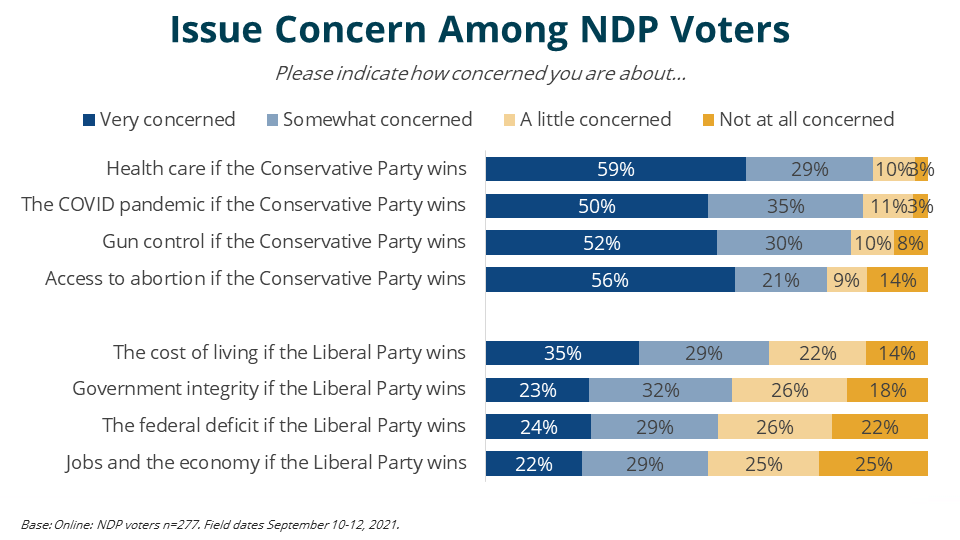
This survey was sponsored by Earnscliffe Strategy Group and conducted by Leger using a random sampling of panelists from Leger’s proprietary online panel. The survey was conducted with 1,549 individuals from across Canada between September 10 and 12, 2021. The data was weighted to be reflective of the Canadian population by age, region, gender, education and mother tongue (QC only, FR vs non-FR) based on 2016 Census data. Since this survey was conducted using an online panel, no margin of error may be calculated.
Earnscliffe follows the CRIC Public Opinion Research Standards and Disclosure Requirements that can be found here: https://canadianresearchinsightscouncil.ca/standards/
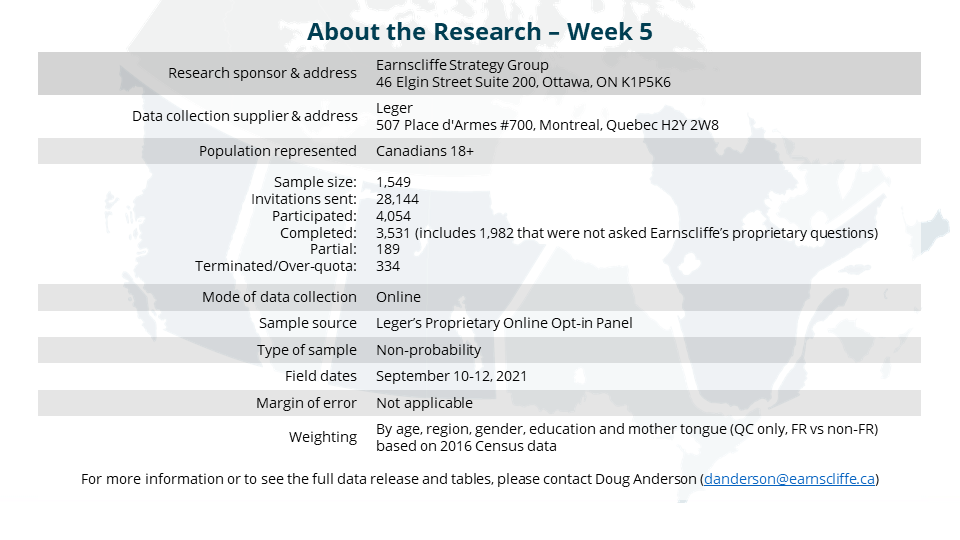
View the survey questionnaire | Download the full data tables
